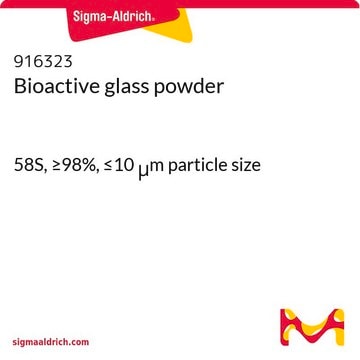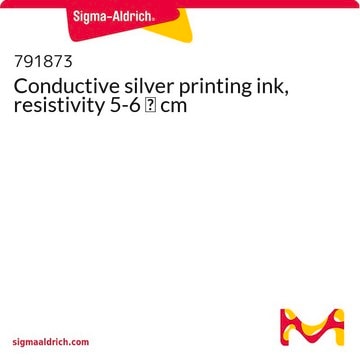추천 제품
애플리케이션
Bioactive glass is able to form a hydroxyapatite-like surface layer thus providing a stable bond to bone cells. In addition, bioactive glass has been shown to stimulate bone cells regeneration. Due to its biocompatability and osteogenic capacity applications include tissue engineering, enamel reconstruction, bio-coatings, and high temperature adhesives. Furthermore, S53P4 has displayed antimicrobial activity.
신호어
Danger
유해 및 위험 성명서
Hazard Classifications
Eye Dam. 1 - Skin Corr. 1B - STOT RE 2 Inhalation - STOT SE 3
표적 기관
Lungs, Respiratory system
Storage Class Code
8A - Combustible corrosive hazardous materials
WGK
WGK 3
시험 성적서(COA)
제품의 로트/배치 번호를 입력하여 시험 성적서(COA)을 검색하십시오. 로트 및 배치 번호는 제품 라벨에 있는 ‘로트’ 또는 ‘배치’라는 용어 뒤에서 찾을 수 있습니다.
Lorenzo Drago et al.
Materials (Basel, Switzerland), 11(2) (2018-03-03)
Bone defects caused by trauma or pathological events are major clinical and socioeconomic burdens. Thus, the efforts of regenerative medicine have been focused on the development of non-biodegradable materials resembling bone features. Consequently, the use of bioactive glass as a
Francesco Baino et al.
Journal of functional biomaterials, 9(1) (2018-03-23)
Bioactive glasses caused a revolution in healthcare and paved the way for modern biomaterial-driven regenerative medicine. The first 45S5 glass composition, invented by Larry Hench fifty years ago, was able to bond to living bone and to stimulate osteogenesis through
Julian R Jones
Acta biomaterialia, 9(1), 4457-4486 (2012-08-28)
Bioactive glasses are reported to be able to stimulate more bone regeneration than other bioactive ceramics but they lag behind other bioactive ceramics in terms of commercial success. Bioactive glass has not yet reached its potential but research activity is
자사의 과학자팀은 생명 과학, 재료 과학, 화학 합성, 크로마토그래피, 분석 및 기타 많은 영역을 포함한 모든 과학 분야에 경험이 있습니다..
고객지원팀으로 연락바랍니다.










